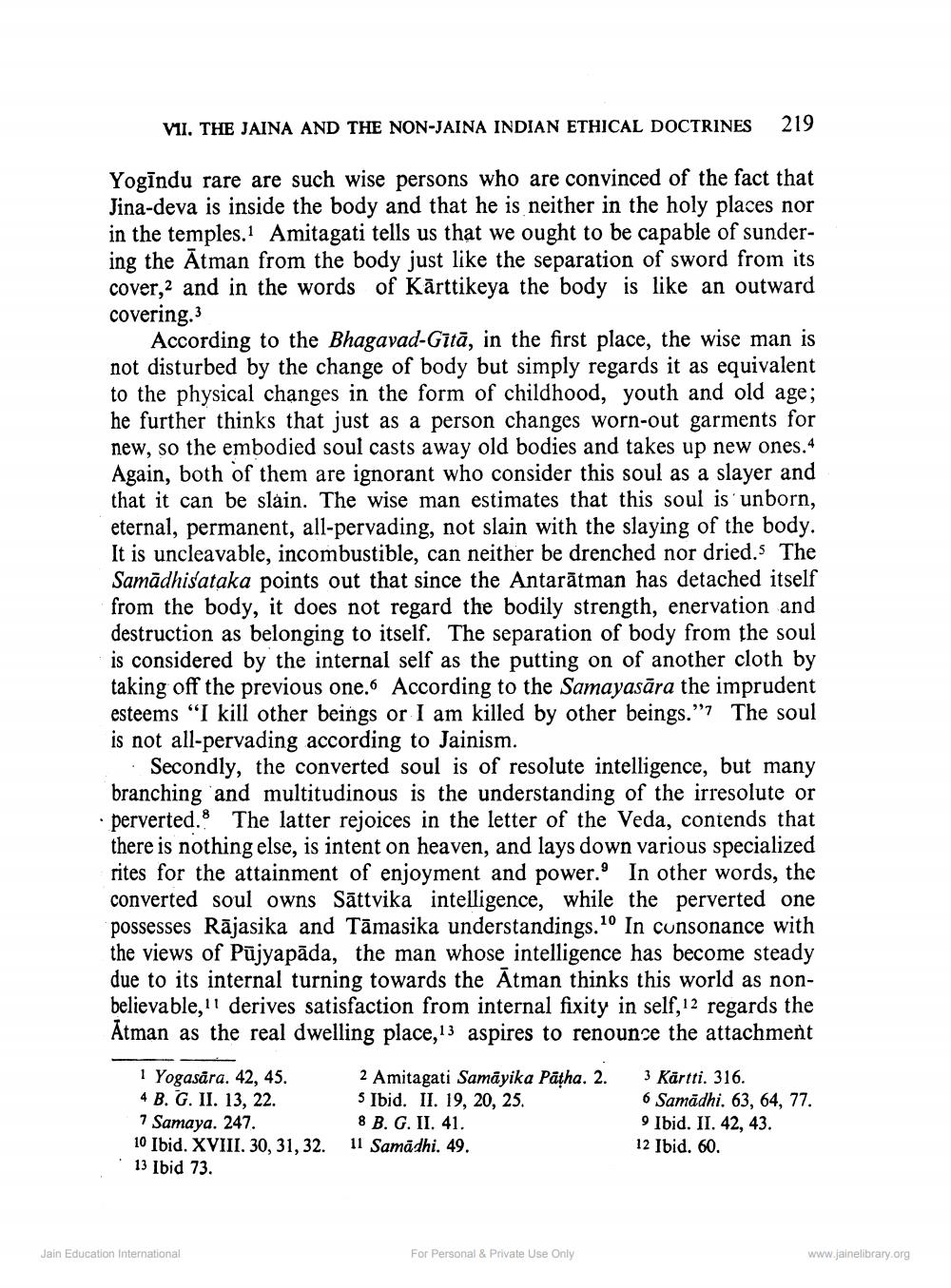________________
VII. THE JAINA AND THE NON-JAINA INDIAN ETHICAL DOCTRINES
219
Yogindu rare are such wise persons who are convinced of the fact that Jina-deva is inside the body and that he is neither in the holy places nor in the temples.1 Amitagati tells us that we ought to be capable of sundering the Ātman from the body just like the separation of sword from its cover, 2 and in the words of Kārttikeya the body is like an outward covering 3
According to the Bhagavad-Gītā, in the first place, the wise man is not disturbed by the change of body but simply regards it as equivalent to the physical changes in the form of childhood, youth and old age; he further thinks that just as a person changes worn-out garments for new, so the embodied soul casts away old bodies and takes up new ones. Again, both of them are ignorant who consider this soul as a slayer and that it can be slain. The wise man estimates that this soul is unborn, eternal, permanent, all-pervading, not slain with the slaying of the body. It is uncleavable, incombustible, can neither be drenched nor dried. The Samādhisataka points out that since the Antarātman has detached itself from the body, it does not regard the bodily strength, enervation and destruction as belonging to itself. The separation of body from the soul is considered by the internal self as the putting on of another cloth by taking off the previous one. According to the Samayasāra the imprudent esteems "I kill other beings or I am killed by other beings.” The soul is not all-pervading according to Jainism.
. Secondly, the converted soul is of resolute intelligence, but many branching and multitudinous is the understanding of the irresolute or • perverted. The latter rejoices in the letter of the Veda, contends that there is nothing else, is intent on heaven, and lays down various specialized rites for the attainment of enjoyment and power. In other words, the converted soul owns Sättvika intelligence, while the perverted one possesses Rājasika and Tāmasika understandings. 10 In consonance with the views of Pūjyapāda, the man whose intelligence has become steady due to its internal turning towards the Ātman thinks this world as nonbelievable, 11 derives satisfaction from internal fixity in self, 12 regards the Atman as the real dwelling place, 13 aspires to renounce the attachment
1 Yogasára. 42, 45. 4 B. G. II. 13, 22. 7 Samaya. 247. 10 Ibid. XVIII. 30, 31, 32. 13 Ibid 73.
2 Amitagati Samāyika Patha. 2. 5 Ibid. II. 19, 20, 25. 8 B. G. II. 41. 11 Samadhi. 49.
3 Kärtti. 316. 6 Samādhi. 63, 64, 77. 9 Ibid. II. 42, 43. 12 Ibid. 60.
Jain Education International
For Personal & Private Use Only
www.jainelibrary.org




